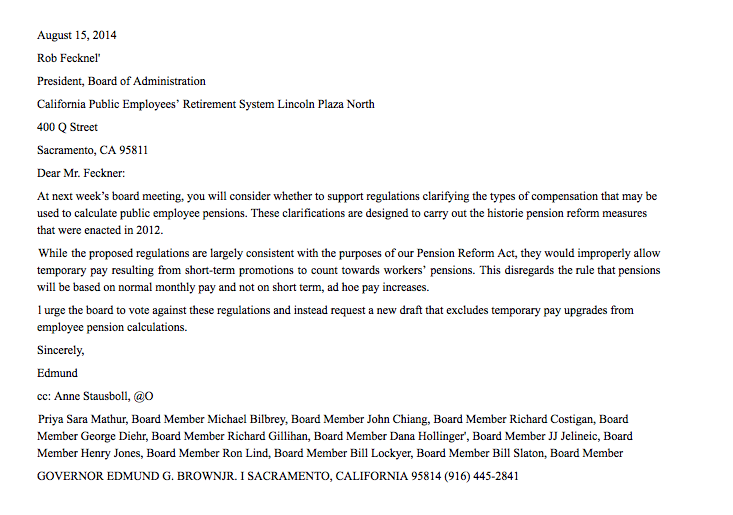Two candidates running for a spot on CalPERS’ board—David Miller and Theresa Taylor—have noticed one similarity in their campaigns: their signs are disappearing. From the Sacramento Bee’s State Worker blog:
In an email to The State Worker, Taylor suggested that Miller’s signs may have been taken down by CalPERS for violating election rules. And she forwarded a cordial email exchange between her campaign consultant and Miller about vanishing signs on both sides:
“… Just a friendly heads up that there seem to be some campaign sign thieves operating in the downtown area,” Miller wrote in a Wednesday email that Taylor forwarded to The State Worker. “Quite a few of my campaign signs have disappeared over the last few days and my campaign workers confronted a couple of the sign thieves just today while working for me downtown. It doesn’t appear that your signs have been targeted but I thought I would let you know so your folks can keep a lookout as well.”
Taylor consultant Scott Adams replied to Miller’s email: “… We too are experiencing our signs disappearing from posted locations. Unlike your guys, we have not spotted any sign thievery in progress. We just started noticing the removal of our signs so it appears to be a recent development. I can’t imagine anyone wanting to collect these as souvenirs – but you never know. Thanks for the note. I will pass it on to Theresa.”
On Friday, Miller said that he doesn’t believe Taylor’s campaign is responsible for the thefts.
“I think it most likely that some overzealous supporters took it upon themselves,” Miller said, “to help their candidate by removing my signs.”
Taylor suggested that some of Miller’s signs could have been removed by none other than CalPERS. The fund might have taken down the signs if they were placed on the fund’s property, which violates election guidelines.
Photo by Dvortygirl via Flickr CC License






